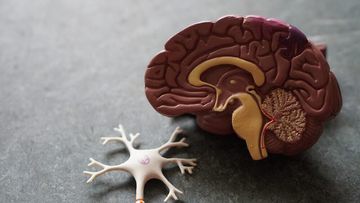Treatment breakthrough for Alzheimer's
NewsTrials for treatment for, rather than medication to manage the impact of, dementias have not made much headway over the past several years, so the findings that lecanemab reduced markers of amyloid in the early stages of Alzheimer's is an exciting breakthrough.
Across 1795 participants, where 898 received lecanemab and 897 received a placebo, the drug was found to result in moderately less decline in cognition and function than placebo over an 18 month period.
Lecanemab is essentially an antibody which sticks to the amyloid proteins in the brain that form the plaques typically seen in Alzheimer's. Lecanemab attracts immune cells which break down the protein and reduce the amount of amyloid proteins surrounding the brain's neurons, thus slowing the disease progression.
However, the fortnightly infusion was associated with adverse events with 26.4% experiencing infusion-related reactions and 12.6% having amyloid-related imaging abnormalities with edema or effusions.
The participants all had 'early Alzheimer's' which referred to mild cognitive impairment or mild dementia due to Alzheimer’s disease - highlighting the importance of early detection and diagnosis for dementia within healthcare services, and of continued awareness raising and education across society.
To find out more, read the research article in the New England Journal of Medicine, or see the BBC''s coverage.
van Dyck HC et al, Lecanemab in Early Alzheimer’s Disease, NEJM, 29 Nov 2022, DOI: 10.1056/NEJMoa2212948
Related articles
Promoting prevention, supporting management
Led by proactive clinicians determined to see improvement in the way we prevent, diagnose and manage dementias, Dementia Academy supports healthcare professionals with the latest tools, resources and courses to do just that.


